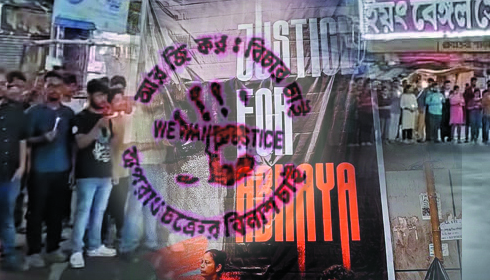
Bengal Junior Doctors Not to Return to Duties till Safety Concerns are Addressed
The protest by junior doctors in West Bengal has been going on for 39 days and isn't going away right now, even though the state government has made some promises. Following their meeting with West Bengal's Chief Minister, Mamata Banerjee, the West Bengal Junior Doctors' Front (WBJDF) declared their intention to continue their sit-in until their demands for safety concerns are met.
The junior doctors have made it clear that they are prepared to negotiate. Still, they have also stated that significant changes are necessary to safeguard the safety and well-being of all state healthcare workers. "We're always welcome to talk." They responded, citing the recent Supreme Court hearing as evidence of the reasonableness of their demands.
The WBJDF has spoken out about several important problems, such as the need for democratic elections to form the Resident Doctors' Association and the Students' Union. Despite numerous discussions with the Chief Minister, these issues remain unresolved, escalating the protests. The doctors say that these elections are very important to stop more tragedies, such as the rape and murder case at RG Kar Medical College Hospital that started these protests.
"We want to re-negotiate our fourth and fifth demands and our demands regarding the health secretary," they said. They also plan to make an official request to the state government on Wednesday morning.
The doctors acknowledge progress but say the state has not done enough. "The hearing in the Supreme Court on Tuesday is quite satisfactory," said Debdoot Bhadra, a junior doctor who works in surgery at RG Kar Hospital. Bhadra was worried that security measures weren't strong enough and stressed the need to move quickly. "We have not placed enough police and CCTV cameras in strategic locations. They need to be quick.
During the talks, the junior doctors persuaded the state government to fire important people, including the Director of Health and the Director of Health Education, among other top officials. They said, "We see this as at least a small victory for our movement." But they said that even though these things were taken away, no real decisions had been made about bigger societal changes.
The main point of the protests has been to make hospitals safer. The junior doctors have spoken out strongly against the state's use of untrained volunteers to guard hospitals. Despite a reported Rs 100 crore investment, they said, the state couldn't give a satisfactory reason for its security measures. "This security system paired with contract workers is not at all appropriate," they said.
When the Supreme Court looked at the state's security efforts, it noticed that putting CCTV cameras at RG Kar Hospital was taking too long. The state government said they would put up 415 cameras, but as of Tuesday's hearing, only 37 were up and running. The Court expressed anger over the slow implementation of security measures and instructed the government to take immediate action.
The doctors have made it clear that making hospitals safer won't fix the bigger problems in West Bengal's healthcare system. There are many changes they want to see happen, such as hiring stable nurses and other health care workers and setting up a central referral system. "We demand a set of demands, including ensuring the central referral system, recruiting the right number of nurses, health workers, and GDA, stopping the contractual employment, and appointing permanent employees," they added.
Patients' safety, the availability of life-saving drugs, and corruption in hospital administration have also raised concerns. The doctors said, "We want to solve all of these problems."
Despite the challenges, the younger doctors expressed a strong desire to resume their work, provided their needs were satisfied. "We want to get back to work; we want to end this impasse very quickly," they stated. The doctors reiterated their desire for the creation of a state-based task force to oversee hospital operations. This task force should include young doctors at every level.
The Supreme Court instructed the state government to immediately implement the confidence-building measures agreed upon in earlier talks. The Supreme Court clarified that the state's efforts must involve both junior and senior doctors, ensuring their participation in decision-making. "We implore the state of West Bengal to take remedial action, if not already done, within 3 days of receiving this order," it said.
The junior doctors continue to demand the dissolution of the Rogi Kalyan Samitis and the legal recognition of resident doctor associations at all medical schools in the state. "We demand immediate fulfilment of these demands," they told us.
Everyone is watching the state government to see if it will give in to the doctors' requests or cause more problems with West Bengal's healthcare system. The protests are still going on.